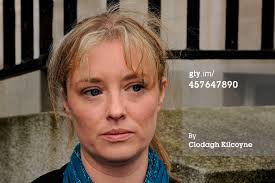Imagine these two contrasting scenarios.
In one case, in country A, a newspaper gets hold of secret documents which show that successive governments have been lying about a matter of supreme national importance. Without hesitation and as soon as humanly possible, the newspaper starts printing stories about the documents.
The government goes beserk and its Attorney-General seeks and secures a court injunction banning that newspaper from further publication. The newspaper’s rivals get hold of the same documents and begin publishing as well. As this happens, and as details of the secrets circulate, public opinion veers increasingly to the side of the media.
The government seeks another injunction which is refused by the court, the judge declaring:
A cantankerous press, an obstinate press, a ubiquitous press must be suffered by those in authority in order to preserve the even greater values of freedom of expression and the right of the people to know.
The government appeals the rejection and takes its case to the highest court in the land which also rejects the government’s case. One of its judges says:
Only a free and unrestrained press can effectively expose deception in government. And paramount among the responsibilities of a free press is the duty to prevent any part of the government from deceiving the people…….
The press in country A thereby wins an historic case and does so by publishing its story without seeking the government’s view on the matter, thus first asserting the right to free expression, and then allowing the courts to decide the matter. The episode is regarded as a high watermark in the history of country A’s free and forthright media.
In the second case, in country B, a billionaire businessman, seeks and secures a court injunction preventing a television station from broadcasting a documentary alleging shenanigans in his financial affairs and improper relations with government-regulated bodies. The injunction applies to other media.
Not long afterwards, a member of country B’s parliament stands up in that chamber and reveals what are widely believed to be the salient points in the injuncted documentary. The parliamentarian does this under the cover of parliamentary privilege, which normally means that the media are free to repeat the words said in parliament, as long as they stick faithfully to those words.
This is because parliaments in most countries are judged to be legally superior to courts, not least because they make the laws that the courts enforce.
Even though the media in country B have published and broadcast words spoken under parliamentary privilege in the past, they unanimously decide that because the businessman is unbelievably rich and could sue them out of business and might even do damage to their advertising revenue, that the court injunction also applies to words spoken under the umbrella of parliamentary privilege. Therefore they decide not to print or broadcast a single word spoken by that parliamentarian.
In doing so they have accorded the billionaire businessman superior legal and political rights to the parliament in country B.
The inaction of country B’s media attracts derisive headlines in other countries like this: “Country B’s Media, Fearing Lawsuits, Steers Clear Of A Billionaire”. The barb is all the more painful because the story appeared in the paper featured in the story about country A above.
Internet outlets and blogs have no inhibitions and freely report the words of the parliamentarian, thereby not only making the mainstream media look risible but underlining one of the reasons why the media in country B are ailing and losing readers and viewers to social media.
Eventually, after several days of looking weak, cowardly and ridiculous, some of the media outlets in country B decide that they will challenge the scope of the billionaire’s injunction in the courts.
This is very strange because the only people, apart form the billionaire’s attorneys, who have said the injunction covers parliamentary privilege are the media in country B!
Not only that but it will be next Tuesday before the case is heard and possibly many days after that before a judgement is announced. By that time, thanks to social media, many of the people in country B will have read the parliamentarian’s words anyway.
This is not a story out of Grimms Fairy Tales but real life events.
If you can guess what the events in country A and country B really were, send your answers on a postcard to: The Director-General, RTE, Dublin, Ireland or to: Kevin O’Sullivan, Editor, Irish Times, Dublin, Ireland.
Alternatively just post a comment here.


















You must be logged in to post a comment.